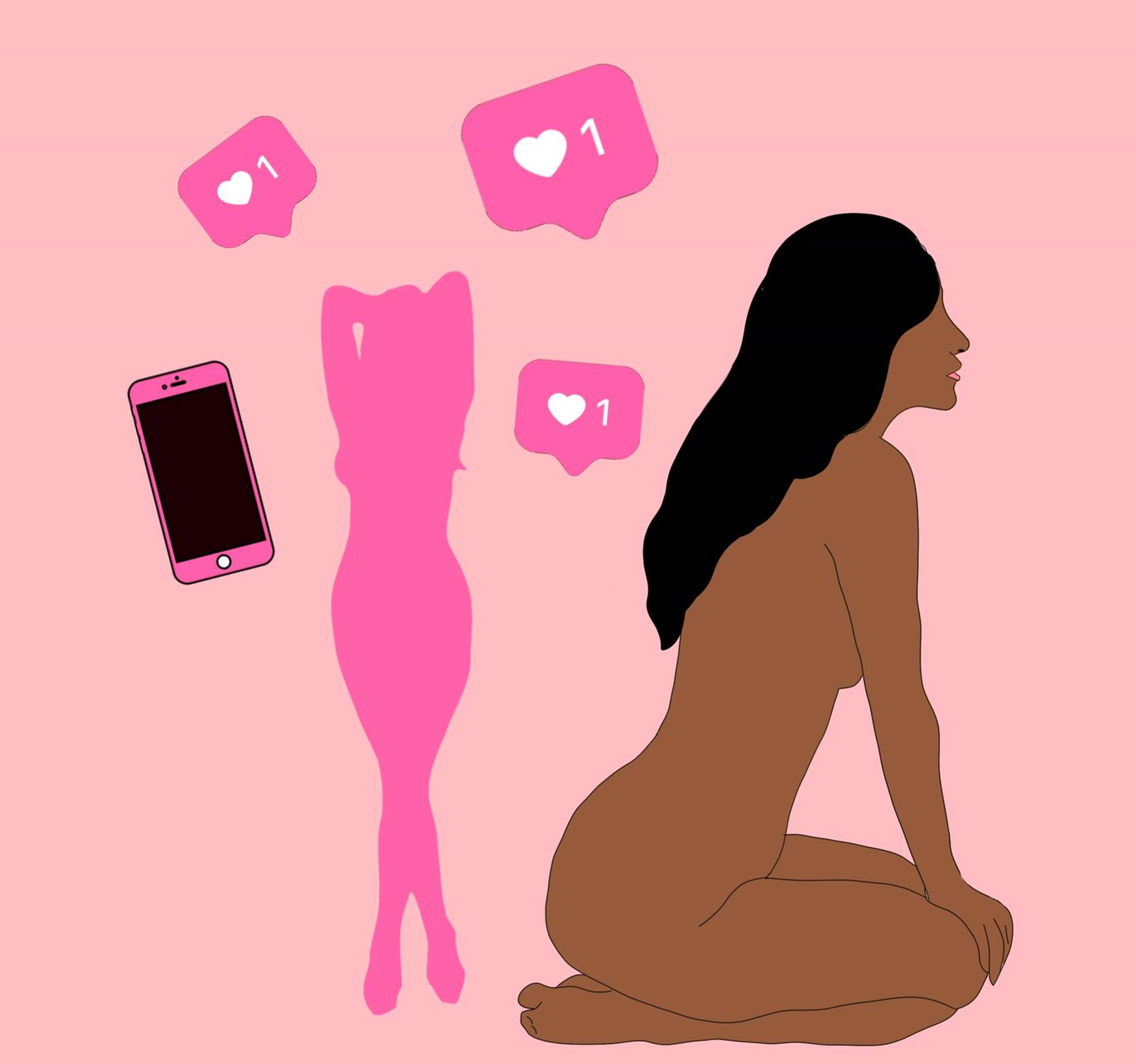Have you ever stopped to find yourself mindlessly scrolling through your Instagram feed? Do you ever put your phone down feeling like your self-esteem has taken a bit of a beating? Chances are, this scenario is all too familiar. And when we spend countless hours looking at flawless faces and stick-thin figures, it’s easy to see why body positivity in the digital age seems completely out of reach.
Scrolling through Instagram can seem like wading through a crowd of people who look a little too close to perfect. The gym bunnies with defined abs and peachy behinds. The celebrities with perky boob jobs and botoxed faces. Even your friend in her bikini as she lies candidly on the beach, soaking up the sun’s rays. It’s no surprise, then, that social media platforms such as Instagram could be affecting the way we view ourselves.
What’s the problem?
Instagram puts appearance on a pedestal. It makes us believe that our identity is defined entirely by the way that we look. If all we see are photos of flawless-looking individuals, it can be easy to forget that anything exists underneath it all.
And then there’s the ‘like’ button. How damaging can a little red heart be, really? But in the appearance-centred world of Instagram, this notion of ‘liking’ another person’s perfect selfie leads us to believe that there’s a direct link between looking ‘good’ and being accepted. In other words, it might actually be reinforcing the idea that the way we look is a measure of our self-worth.
The age of the filter
Most of us wouldn’t dream of uploading a photo to Instagram that hasn’t been filtered in some way, shape or form. Whether it’s to disguise a facial feature, modify the colour of our skin, or even make our hair that extra bit shiny, there’s always something we feel we need to change. But the problem is that the more time we spend on social media surrounded by filtered versions of reality, the more distorted our view of ourselves will become. And it won’t take long before our natural, unedited selves don’t seem beautiful enough.
Luckily, mainstream celebrities are starting to make a stand against the filter and the ways in which it can negatively affect our body image. Among these is Jameela Jamil, who has recently spoken out about the dangers of airbrushing, branding it as damaging to mental health and a means of “legitimizing the patriarchy’s absurd aesthetic standards.” Way to go, Jameela!
How can we develop body positivity in the digital age?

We need to ask ourselves: what is this ‘beauty’ that we’re all trying so desperately to achieve? The reason that modern beauty standards are so damaging to mental health is that they are so slim, they’re unattainable. And no matter how much we try to mould ourselves to fit this teeny-tiny ideal, we’ll never be fully satisfied with the way we look.
Instead of striving towards a perfection that doesn’t exist, we need to make a stand against these ridiculous beauty ideals. We need to reinvent the definition of what it is to be beautiful in today’s world.
In order to develop body positivity in the digital age, it’s important that we’re mindful about the ways in which we use social media. So, how can we go about doing this?
1. Have regular ‘detox’ periods
Deleting Instagram might seem like a big step. And despite the negatives, social media can have some wonderful benefits when used mindfully: it’s a great tool for business, it allows you to connect with friends from all over the world, and it’s handy for staying in the know with news, events and organisations. So instead of going all the way and deleting social media altogether, why not try deactivating your account for a few days or weeks at a time? Go for a run purely for the health benefits without feeling the need to post it to your Instagram story. Wear a new outfit to meet a friend because it makes you feel good. Remind yourself that there’s a whole life that’s waiting for you outside of Instagram.
2. Remember: there’s more to life than appearances
In the world of social media, it can be easy to forget that life’s not all about what we look like. We often assume that physical attractiveness and happiness go hand in hand. But it’s important to remember that this isn’t necessarily the case. Just because someone looks like they’re glowing on the outside, it doesn’t always mean they’re glowing on the inside. There may be a lot going on beneath the façade of Instagram that we don’t know.
3. Re-think the Instagram accounts you follow
If you notice a little dent in your self-esteem each time you scroll through your Instagram feed, it might be time to reassess the accounts you follow. The things we expose ourselves to on social media can have a huge impact on our moods, so try to ensure that you only follow accounts that make you feel good about yourself. Forget aesthetics and find users that inspire you for other reasons: photographers, artists, authors. You will soon notice a shift in the way you feel about yourself.
4. Join the body positivity movement
More and more Instagram users are waking up to the negative effects social media can have on self-esteem and using their accounts to shine a light on this. There are now countless users who, instead of trying to attain to the teeny-tiny beauty ideal portrayed by the media, are celebrating the diversity of the human body and the many forms beauty can take. From mothers-to-be celebrating the pregnant body to mid-sized fashion bloggers, more individuals than ever before are promoting body positivity in the digital age. Why not join them on their journey to widen the accepted definition of what it is to be beautiful in the modern world?
Find more well-being articles here >
Written by Hannah Hussein
Illustrated by Francesca Mariama

